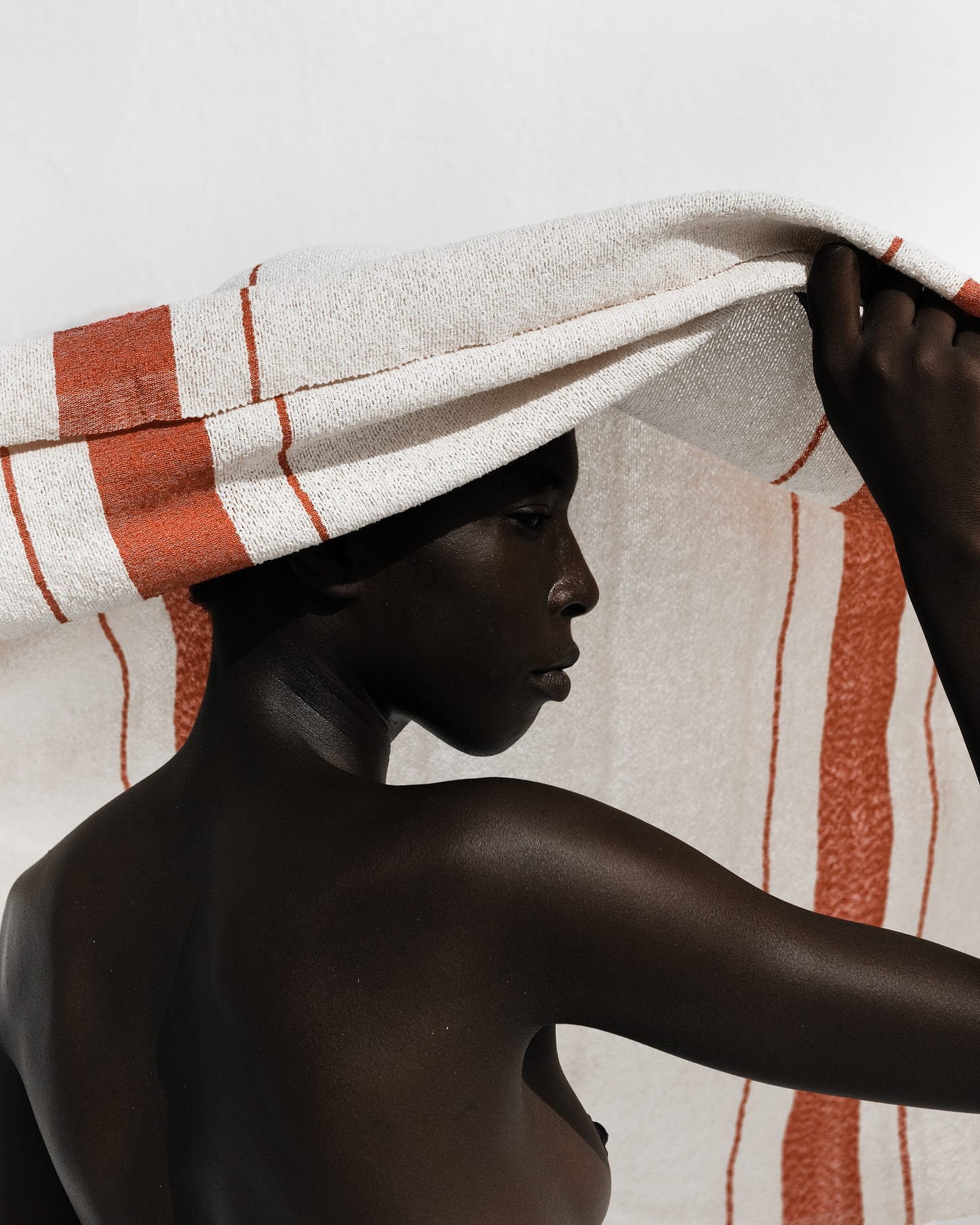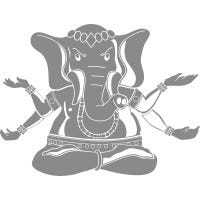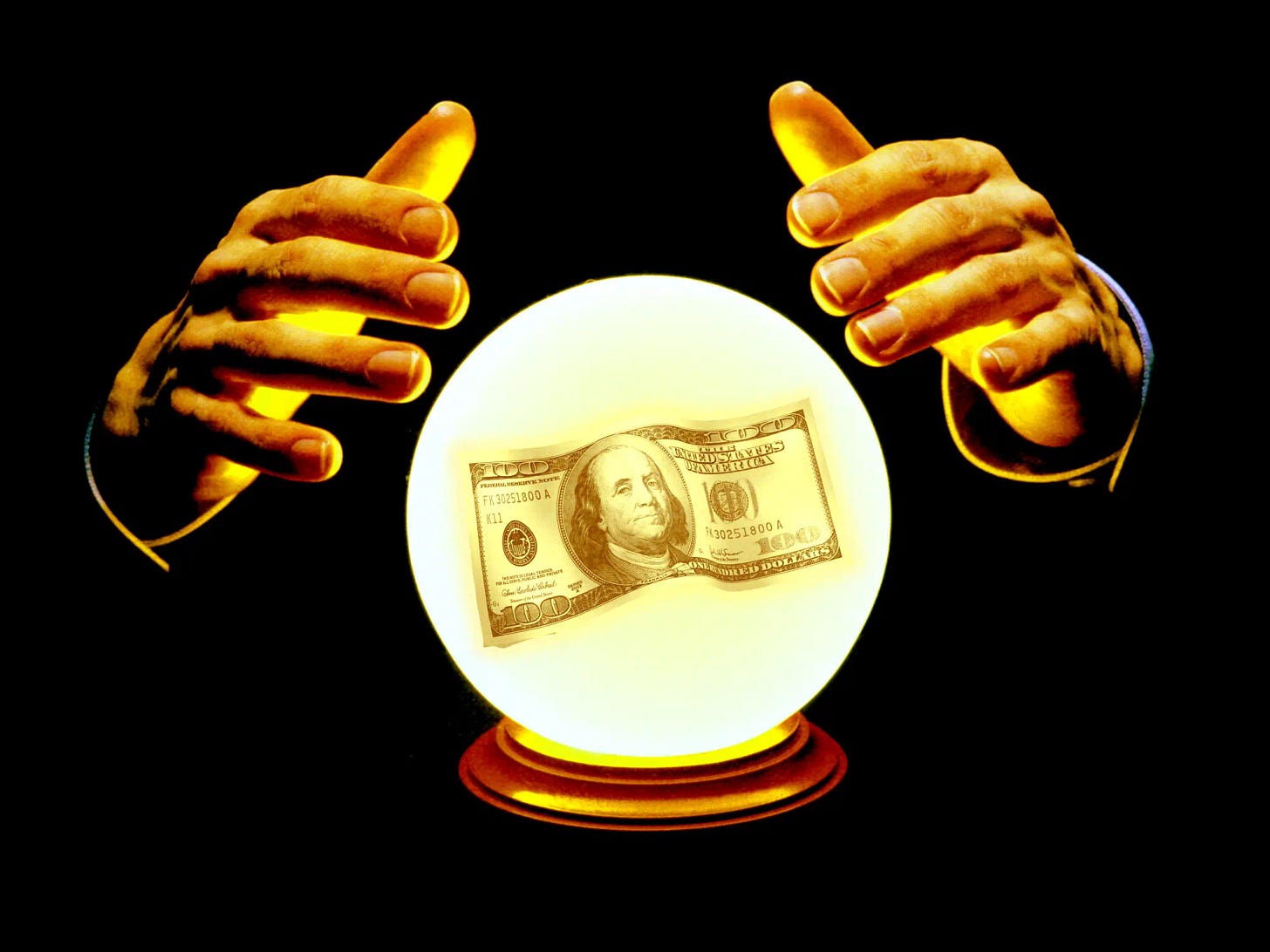Curatorium #4: Ganesha logos, Witchcraft and viral LinkedIn posts
Unraveling CultureTrends That Don’t Sit Still.
It’s been a whole minute and I’ve missed this everyday - a fresh substack window and a mountain of whats-been-up in the world from the lens of Marketing.
Despite the fact that I’ve been reading a little bit of everything, this Curatorium is a bit bizarre, to be fully frank, perhaps a sign of the times but promise to keep you entertained throughout.
Here goes:
First things first, our latest podcast was out sometime ago. We sit down with Alia Mahmoud and Lamia Hatira, co-founders of Fouta Harissa, a modern textile studio rooted in Tunisia, born out of friendship, memory, and a shared reverence for the fouta, the everyday Tunisian textile that dries quickly, folds softly, and carries generations of craft. Fouta Harissa is their love letter to heritage and a step towards reviving the Tunisian textile industry. I really enjoyed this conversation - don’t miss it! Its on Spotify & Youtube.
Lanzante x Ganesha
Alright so everyone is talking about the new Lanzante logo. Its an (angry) Ganesha, the Hindu elephant god, known for prosperity and new beginnings.
My question is: why?
There is some logic to it, apparently, the choice of Ganesha as an emblem traces back to George Harrison of The Beatles, who was deeply drawn to Indian spirituality and happened to be a great friend of the founder of the company. Since Ganesha is a source of good luck and a remover of obstacles - values that Lanzante says mirror its philosophy of tackling complex engineering challenges while preserving elegance, it made sense to them. So it makes for a great story and has definitely put the brand on the radar and as a culture conversation on the socials.
As Marketer, though, I wonder if the logo really resonates with Lanzante’s clientele. Not to mention the logo itself is rather surprising, I initially thought this was a joke, given there are better versions of Ganesha speaking design-wise.
Like Seth Godin says: A “Deer Xing” sign isn’t there to tell the deer where to cross the road. It’s there to let drivers know that this is the spot where deer often choose to cross the road. The intention of this metaphorical deer sign is unclear to me.
Here are ten "Yes"/"No" questions you can ask yourself to know if your logo needs improvements ("Somewhat" doesn't cut it, though):
Does my logo accurately reflect my company’s positioning and personality?
Is my logo simple, memorable, and easily recognizable?
Is my logo appropriate for my industry and target audience?
Are my colors appropriate and consistent with my brand’s personality, and do they make the correct positioning statement?
Does my logo leave a positive impression, and is it easily associated with my company?
Is the font used in my logo legible and easy to read, consistent with the company’s branding and messaging?
Is the size and spacing of the letters appropriate and balanced?
Is the icon in my logo meaningful, recognizable, and versatile?
Does my logo look professional and original?
Is my logo consistent in different contexts and mediums
(written by Manelik Sfez, founder of the Swiss brand consultancy Ultrabrand.)
The Viral Moment
Speaking as a Marketer, here’s a hill I’d die on too - this almost-viral post and the comments have been resonating with Marketers. One of my favourites: “If a job description uses the words "rockstar", "guru", or "unicorn"...run. You missed 'Ninja'. No one should be doing martial arts while marketing a SaaS product.”
The Rise of the Etsy Witch
This TIME story looks at the rise of “Etsy witches” : people selling spells for everything from love to perfect wedding weather. What was once fringe has slipped into the mainstream via TikTok and Etsy, repackaged as a mix of spirituality, wellness, and entertainment.
Why I think people are buying spells
On the surface, it’s fun and a little mystical. But underneath, the trend speaks to real economic pressures. In uncertain times : high rents, precarious jobs, cost-of-living spikes, people crave a sense of control.
Behavioural economists call this a coping mechanism for uncertainty: when the future feels unpredictable, we gravitate toward rituals, even small symbolic ones, to restore a feeling of agency. Psychologists would add that it’s a placebo effect of hope, the act of buying a spell isn’t about guaranteed results, but about lowering anxiety and reinforcing the belief that you’re “doing something” in the face of instability. In other words, Etsy spells are less about magic, more about managing the stress of modern economic life.
What do you think?
Think someone else would love this? Subscribe yourself, then share with reckless abandon!











